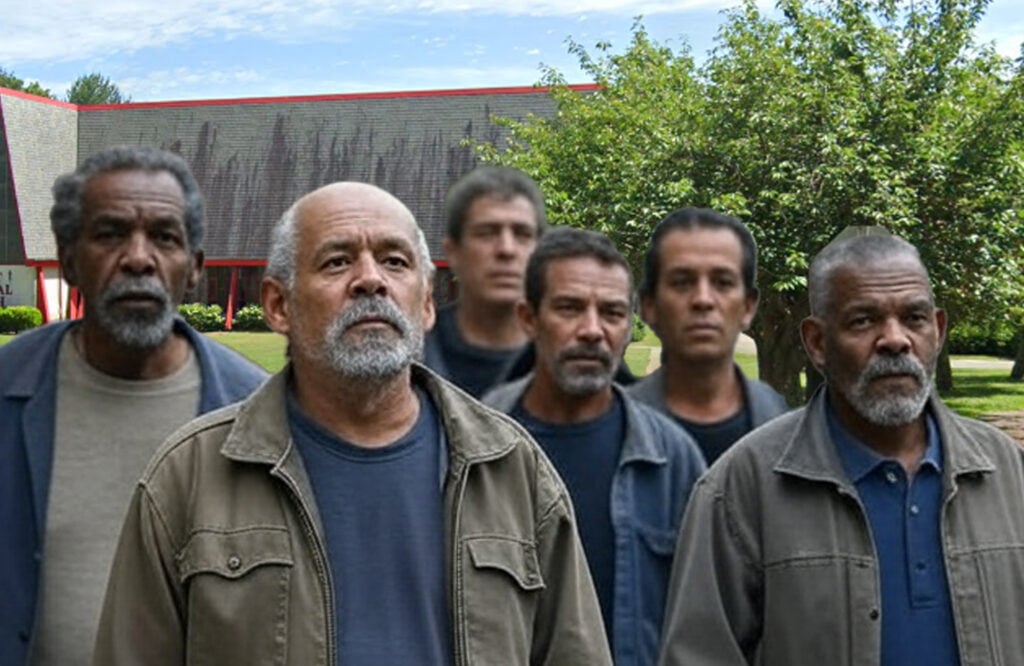Toms River Mayor Daniel Rodrick’s proposal to seize Christ Episcopal Church’s 10.8-acre downtown property through eminent domain has sparked a heated debate, pitting the township’s vision for recreational development against the church’s vision to establish a 17-bed homeless shelter in a residential neighborhood.
The plan, which includes transforming the church grounds into a public park and playground, raises questions about Rodrick’s intentions, the influence of local sentiment, and whether this bold move is a sincere policy goal or a calculated maneuver reminiscent of Trump-style brinkmanship.
Does Rodrick Truly Intend to Seize the Church?
I have met Mayor Rodrick, and he came to my door on three separate occasions and I know him to be a devout religious man.
Rodrick’s push for eminent domain, introduced via an ordinance on April 30, appears resolute on the surface. He has publicly framed the acquisition as a means to address a shortage of recreational spaces for downtown Toms River’s nearly 20,000 residents.
A poll he referenced showed 66% support among 400 residents, suggesting confidence in community backing. Yet, the postponement of the final vote to July 30, to allow negotiations with church officials hints at potential flexibility and political gamesmanship.
Rodrick has expressed a preference for an “amicable settlement,” suggesting he may be open to alternatives if the church relents or compromises for the good of its neighbors.
The timing—announced three weeks before the zoning board’s rejection of the shelter on June 12—fuels speculation that Rodrick’s true aim is to block the shelter rather than secure a park, but even his most vocal opponents on the zoning board had a hand in the denial, meaning that perhaps there’s more than meets the eye on this.
Like Donald Trump’s high-stakes tactics, often designed to force concessions, Rodrick’s aggressive posture may be a negotiation tactic to pressure the church into abandoning its plans. Also, like Trump, Rodrick let the drama play out on social media, rather than through official channels.
A Defensive Move for Downtown Neighbors?
The proposed homeless shelter has faced fierce opposition from downtown Toms River residents, who argue it would attract more homeless individuals, depress property values, and compromise neighborhood safety.
An expert witness at a zoning board meeting predicted a 15% decline in nearby home values, amplifying these concerns. The board 5-2 against the proposal.
The initial council vote happened long before the zoning board vote, meaning Rodrick may have had no idea how the board, appointed by the prior council, would vote.
A Game of Chicken at Political Cost?
As a religious man himself, Rodrick’s clash with Christ Episcopal Church is a curious one.
The parallels to Trump’s 2025 run-in with Episcopal leaders, who criticized him during his inaugural mass, are striking. Both men, wielding populist appeal, have positioned themselves against the church’s radical political beliefs.
Rodrick’s gambit resembles a high-stakes game of chicken, where he wagers political capital to champion local interests. By threatening eminent domain, he signals strength to his base, particularly those opposed to the shelter. Yet, the move is not without peril. The church, backed by the Episcopal Diocese of New Jersey and a large legal fund, is prepared to fight, potentially dragging Toms River into a protracted legal battle.
Mayor Rodrick’s eminent domain plan appears to be a complex blend of policy and politics. Even though the application failed before the board, the church has 45 days to sue the township to overturn the ruling. Perhaps the mayor has not backed down yet, but he also hasn’t veered off course in his game of chicken with the church.
